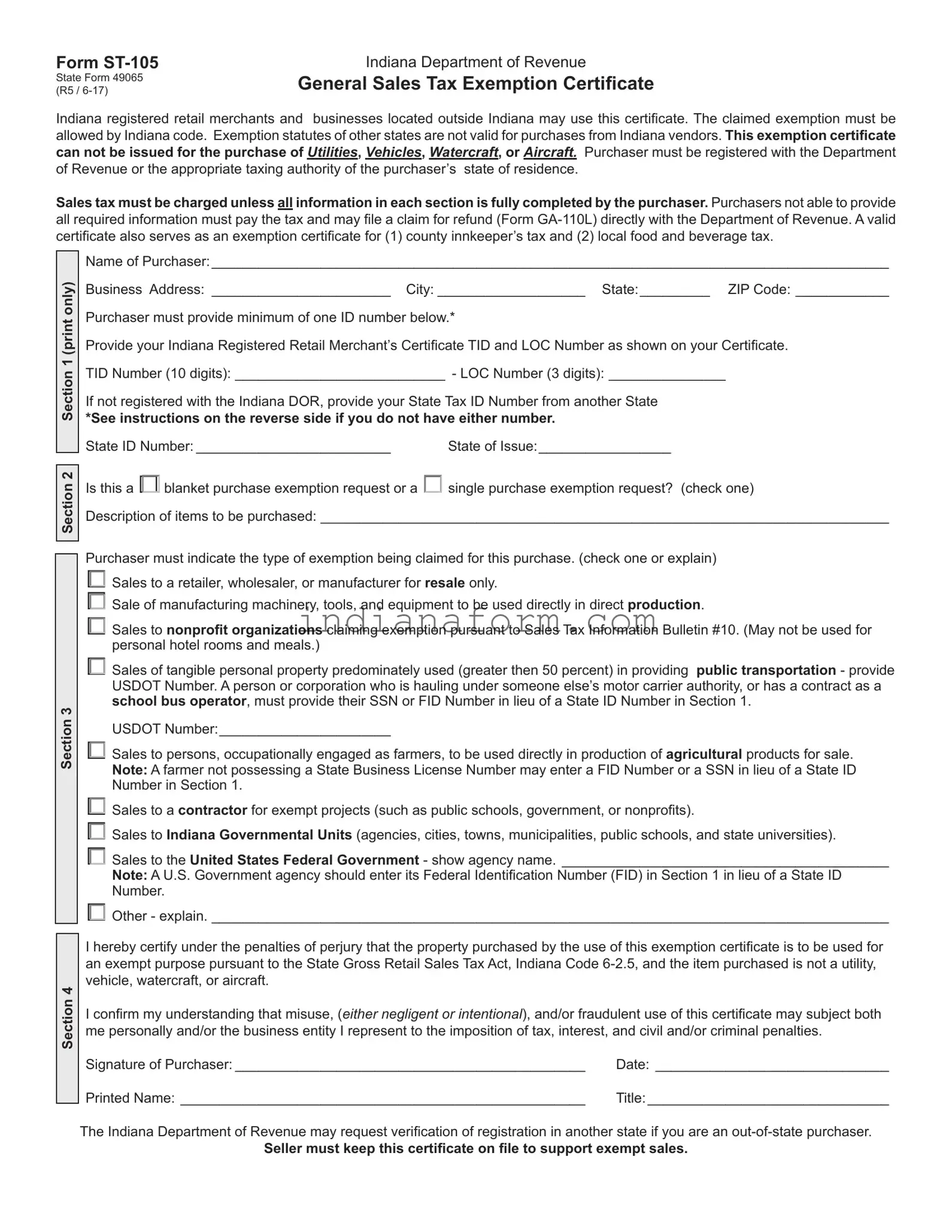Name of Purchaser:________________________________________________________________________________________
Business Address:_ _______________________ City:____________________ State:__________ ZIP Code:_____________
Purchaser must provide minimum of one ID number below.*
Provide your Indiana Registered Retail Merchant’s Certificate TID and LOC Number as shown on your Certificate.
TID Number (10 digits):____________________________ - LOC Number (3 digits):________________
If not registered with the Indiana DOR, provide your State Tax ID Number from another State
*See instructions on the reverse side if you do not have either number.
State ID Number:__________________________ |
State of Issue:_________________ |
Is this a □blanket purchase exemption request or a □single purchase exemption request? (check one)
Description of items to be purchased:__________________________________________________________________________
□must indicate the type of exemption being claimed for this purchase. (check one or explain)
□Sales to a retailer, wholesaler, or manufacturer for resale only.
□Sale of manufacturing machinery, tools, and equipment to be used directly in direct production.
Sales to nonprofit organizations claiming exemption pursuant to Sales Tax Information Bulletin #10. (May not be used for
□personal hotel rooms and meals.)
Sales of tangible personal property predominately used (greater then 50 percent) in providing public transportation - provide USDOT Number. A person or corporation who is hauling under someone else’s motor carrier authority, or has a contract as a school bus operator, must provide their SSN or FID Number in lieu of a State ID Number in Section 1.
□USDOT Number:______________________
Sales to persons, occupationally engaged as farmers, to be used directly in production of agricultural products for sale. Note: A farmer not possessing a State Business License Number may enter a FID Number or a SSN in lieu of a State ID
□Number in Section 1.
□Sales to a contractor for exempt projects (such as public schools, government, or nonprofits).
□Sales to Indiana Governmental Units (agencies, cities, towns, municipalities, public schools, and state universities).
Sales to the United States Federal Government - show agency name._ __________________________________________
Note: A U.S. Government agency should enter its Federal Identification Number (FID) in Section 1 in lieu of a State ID
□Number. Other - explain.________________________________________________________________________________________Purchaser
I hereby certify under the penalties of perjury that the property purchased by the use of this exemption certificate is to be used for an exempt purpose pursuant to the State Gross Retail Sales Tax Act, Indiana Code 6-2.5, and the item purchased is not a utility, vehicle, watercraft, or aircraft.
I confirm my understanding that misuse, (either negligent or intentional), and/or fraudulent use of this certificate may subject both me personally and/or the business entity I represent to the imposition of tax, interest, and civil and/or criminal penalties.
Signature of Purchaser:______________________________________________ |
Date:_ ______________________________ |
Printed Name:_____________________________________________________ |
Title:________________________________ |




